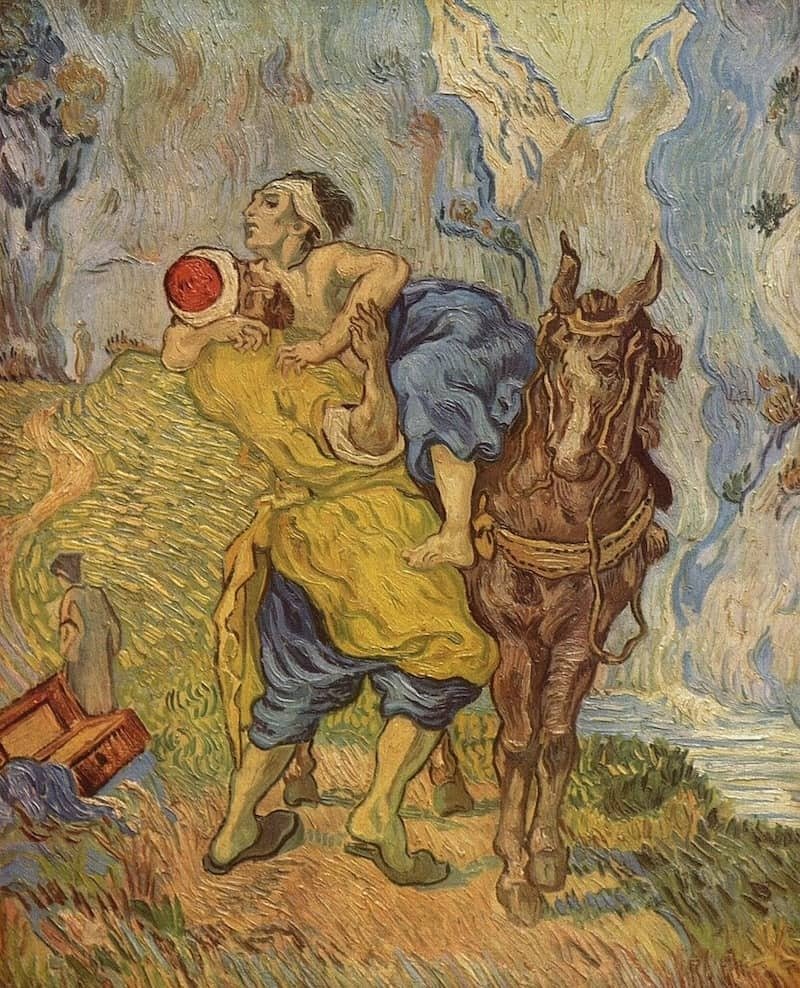Today’s parable in the Gospel is one that is well known among both Christians and non-Christians, the parable of the Good Samaritan. While we know a lot about this parable, ways to apply it vary as one seeks to identify with any of the characters, be it the scholar of the law who asked the question that prompted the parable, or in the parable itself, the man who fell victim to robbers, the priest and Levite that both passed by the opposite side, the Samaritan traveler or the innkeeper. The question here is “who is my neighbor?” and when one finds out, the instruction is to “go and do likewise.”
Jesus in this gospel passage obviously gives us the example of the Samaritan traveler as the model for dealing with others who are our neighbor. The neighbor here is not just the person sitting or standing or living next to me. It goes beyond a physical place or space. It goes beyond nationality or race or tongue. My neighbor is any human being made in the image and likeness of God irrespective of who they are. We get this latent detail from the subtle mention of the state of the victim in the parable – “they stripped him.” In ancient Palestine as is in many other climes of ancient and modern times, clothing or attire can give out one’s identity and nationality. So, a priest or Levite, who probably are on their way to perform liturgical rituals, would not dare defile themselves by associating with a non-Jew, as is in the case of the victim in this parable, since there was no way to identify this naked man.

To add salt to the injury (so to say), another subtle detail in the parable is that this man is almost lifeless – “[they] beat him and…leaving him half-dead.” Touching a dead person incurs more ritual impurity for a priest and Levite, or for any Jew, for that matter. Since there is no way of determining the state of this victim by the road, someone conscious of ritual impurity would almost be compelled to avoid the “half-dead” man and pass by. But Jesus has come to give a new commandment, a commandment of love, unconditional love, no matter who it is. It does not have to be someone that I know for me to save a life or even carry out a spiritual work of mercy of burying the dead (assuming the victim was already dead).
Jesus does not only disapprove of the attitude of the priest and Levite, who were supposed to be exemplars for his audience, but he approves and gives his audience as a model, someone who culturally for a Jewish audience at the time, worths nothing, a Samaritan. The Jews and the Samaritans do not care for each other historically - (we know about this disdain among Jews and Samaritans from the Gospel of St. John as well as from the Old Testament). But Jesus, a Jew, paints a beautiful, compassionate and unconditional love-filled portrait of this Samaritan, who gives all he had in order to care for a man he did not know, a man he was not sure to be a fellow Samaritan or even a Jew, whom he should culturally and historically dislike. Rather this Samaritan traveler “was moved with compassion at the sight. He approached the victim, poured oil and wine over his wounds and bandaged them. Then he lifted him up on his own animal, took him to an inn, and cared for him. The next day he took out two silver coins and gave them to the innkeeper with instructions, ‘Take care of him. If you spend more than what I have given you, I shall repay you on my way back.’” The Samaritan traveler really gave all he had to care for a man he did not know, hence the Good Samaritan.
Jesus intentionally did not reveal the identity of the victim in this parable. Maybe he did not because we do not need any more identification to tell who our neighbor is. We do not need to know someone before we can be nice and kind and generous to them. My neighbor does not need to meet every criterion that I expect before receiving favors from me. The identification we need is not “too mysterious and remote…. It is not up in the sky…nor across the sea…No, it is something very near…already in [our] mouths and in [our] hearts,” Moses says to us in the first reading today. It is already visible to us, written in our hearts, namely, the Image of God in each human being; the image that is perfectly lived out and exemplified in Jesus Christ for he “…is the image of the invisible God, the first born of all creation,” St. Paul tells us in the second reading today.
Who do I identify with in this gospel passage; the scholar of the law who asked the question, the man who fell victim to robbers, the priest or Levite, the Samaritan traveler or the innkeeper? To figure this out, it is important to revisit that question: “who is my neighbor?” Whoever I identify with, I must consider how to treat my neighbor as Jesus intends and when I find out, the instruction is to “go and do likewise.” So we pray as in the Collect of this Sunday, “O God, who show the light of your truth to those who go astray, so that they may return to the right path, give all who for the faith they profess are accounted Christians the grace to reject whatever is contrary to the name of Christ and to strive after all that does it honor.” May God shed the light of his truth on us irrespective of who in this parable we identify with, so that by his grace we may endeavor to heed the instruction of Jesus Christ, learning from him as to “go and do likewise.”


